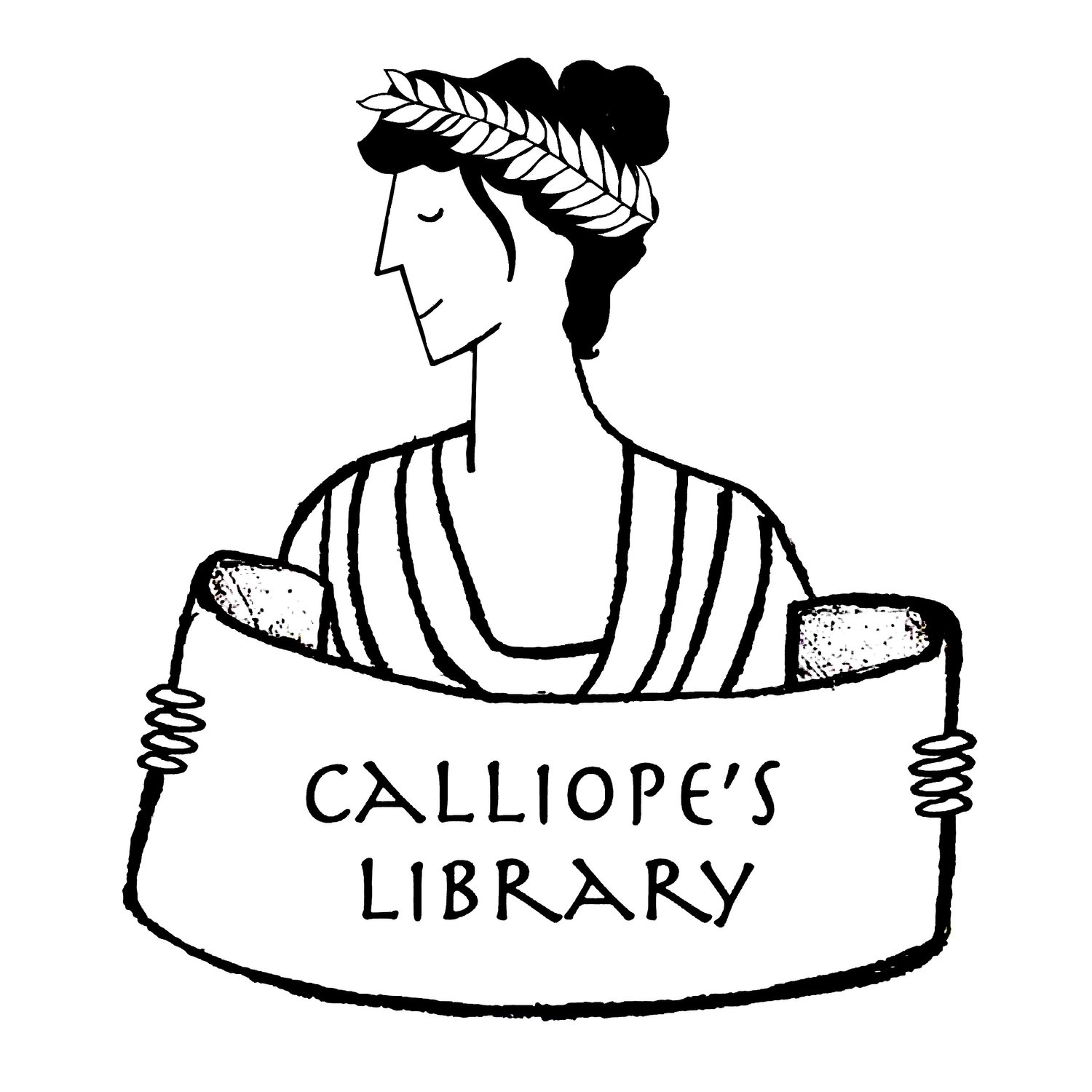Title: D’Aulaires’ Book of Greek Myths
Authors and Illustrators: Ingri and Edgar Parin D’Aulaire
Date: 1962
Tags: 10+, Picture Book, Setting: Ancient Greece; Mythology, Greek; Mythology, Collection
Readers interested in a scholarly approach to children’s literature may consult this title on Our Mythical Childhood Survey*
This collection was first published in 1962, but it’s still one of the best children’s collections of Greek myths. It starts with the union of Gaia (the Earth) and Uranus (the sky) then tells most Greek myths of the gods and heroes in one continuous narrative sung by the Muses, goddesses of poetry. The authors avoid sex and violence when they can (for example, Zeus has many “wives”) but otherwise stay true ancient versions. Don’t worry, though: Prometheus still gets his liver eaten every day until Hercules rescues him.
The illustrations in the book are wonderful. Some are line drawings tinted to look ancient, while others are brightly colored. The book includes a map of ancient Greece and a couple family trees. Most of the illustrations are based off of ancient art and architecture. For example, Theseus finds the Minotaur underneath an accurate reconstruction of a Bronze Age palace, and Ariadne’s outfit is borrowed straight from ancient Minoan art. Page 67 has a beautiful image of Dionysus on the pirate ship taken straight from an ancient vase painting.
Inevitably, the illustrations show an unusual number of Western Europeans for a collection of stories about the Mediterranean. Although the text says correctly that Andromeda is an Ethiopian princess, she is drawn with yellow hair and blue eyes. It is the one major flaw in an otherwise first-rate collection.
There are many great books of classical mythology for children, but I’ve never found any that are more fascinating to kids than this one. When I used the book to teach a mythology class to 5th graders (ages 10-11), I literally could not get my students to stop reading it. Some of them would skip lunch to come to my classroom and read ahead. In spite of its flaws, I can’t recommend this book enough. I guarantee that readers of all ages will love it. – Krishni Burns
* For further information on the Our Mythical Childhood Survey, please refer to the website of the project “Our Mythical Childhood” [link: http://omc.obta.al.uw.edu.pl/], led by Prof. Katarzyna Marciniak at the Faculty of “Artes Liberales,” University of Warsaw, Poland, with the participation of Bar Ilan University, University of New England, University of Roehampton, University of Yaoundé 1, and other affiliated scholars, within the funding from the European Research Council (ERC) under the European Union’s Horizon 2020 Research and Innovation Programme (grant agreement No 681202).


